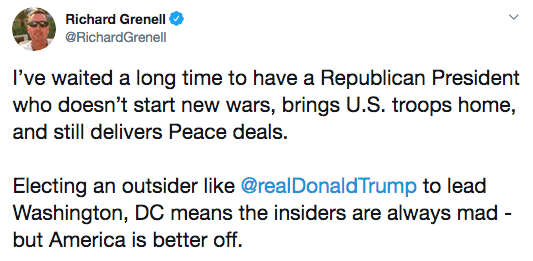HIGHER EDUCATION BUBBLE UPDATE: Thanks to Coronavirus and Zoom, We’re Looking at the End Stages of College as a Commodity.
And now we get to the essentializing, because the pandemic has made something undeniable: To a large extent, students have become customers. And professors should acknowledge their own role in getting us to that point, because the commodification of higher education is a direct byproduct of the transformation of college into the entrance examination for America’s middle class, something the professoriate has cheered on.
Sure, students are buying a complex bundle that’s rarely described as a “product.” But if you doubt colleges are selling, you need look only at the glossy marketing campaigns. And if you think they’re mostly selling learning, consider this thought experiment from economist Bryan Caplan: If you had to choose, would you rather have four years of Princeton University classes but no diploma, or the diploma, but no classes?
Maybe you’d choose the classes; if so, you’re in the minority. Most students are primarily buying something else — a credential, a social network — not a “community of learning.” Which is not to say that this is what they should be buying, or that we should even think of it as a “purchase.”
Markets are terrific, and we need them, but we also need institutions that are buffered from them. When those buffers break down, as they have in America’s colleges, dysfunction ensues. University business-think has meant bureaucratic overgrowth and an obsession with useless “metrics” — assessing faculty using student evaluations rather than student learning, goosing “selectivity” by soliciting applications in order to reject them.
Professors rightly resist these developments. But what else could you expect once colleges became the gatekeeper to all the good jobs? Now most everyone needs to go, regardless of their interest in learning. And an essentially scholarly enterprise doesn’t serve most of those people well.
So instead, U.S. higher education bundled “teaching and research” with a bunch of other things — residential amenities, sports teams, networking opportunities, career coaching, dating service and so forth. Among other effects, all this initially created a booming demand for professors; their numbers quintupled from 1940 to 1970 and then almost doubled again by 1988. Without that shift, most of the professors complaining about the commercialization of education would have had to take jobs in actual businesses.
You don’t want that. I’ve worked in the private sector. They expect results. Well, unless you’re a diversity officer or something.
Plus: “The bundle was still tightly woven enough, however, that we could tell ourselves the learning was still the heart of the package. Then covid-19 came, and suddenly, the lectures and the homework were the only part schools could still deliver. Yet somehow, few students seem reassured that they’re getting most of what they were paying tuition for. Deep down, even university presidents knew this would be the case, which is why so many spent the summer pretending they were going to find some way to reopen, in many cases announcing the truth only when the tuition checks were well in hand.”
Super-cynical, and entirely correct.








